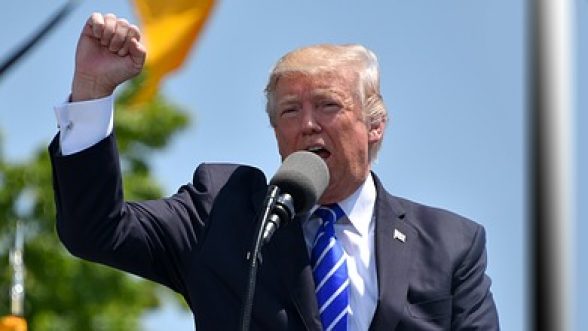
Does your political party affiliation influence your financial decisions? Most likely. Yosef Bonaparte, PhD, assistant professor of Finance, and colleagues set out to explore how the political climate affects investors, companies, and the economy at large.
Influences on the economy on a micro level
Think of when the newly elected president was from your affiliated party. How did you feel towards the economy? You probably felt optimistic. Not surprisingly, research has found that confidence in the economy leads you to invest in riskier assets, like high-beta, small-cap, and value stocks. Investors perceive the markets to be more undervalued and less risky when their own party is in power.
For example, when republicans are in power, republican investors are more likely to take greater risks, because they are more hopeful the stock market will perform well. Whereas democrats are overconfident and over forecast. In other words, they overestimate their abilities and the precision of their forecasts when republicans are in power. Since a democratic investor does not trust the republican party, he/ she will trade more frequently, and more trading is a proxy for overconfidence.
The presidential puzzle
Historically, the stock market has performed better when a democratic president was in power. Overall, the stock market is nine percent higher when there is a democratic president when you disregard the economy during the Great Depression. Since the US population is primarily made up of equal parts democrats and republicans, wouldn’t you think the economy would behave similarly regardless of the presidential party?
“Overall, the stock market is nine percent higher when there is a democratic president when you disregard the economy during the Great Depression.”
This question is the basis for the presidential puzzle. According to Bonaparte, democratic presidents typically have a better ability, while republicans have better policy. Ability is hard to quantify; however, it is often equated to competence.
The short-term impact of Trump’s tweets on the stock market
When the stock market increases by 2.5 percent or more, there’s a 90 percent chance that President Trump will tweet about it. When Trump tweets about the performance of the economy, the stock market goes up about 0.5-0.6 percent that same day. But this is only the short-term impact. By as little as six or seven months, the economy and stock market will level out. When you look at the long term, the stock market always aligns with the economic value regardless of past Twitter activity.
“When Trump tweets about the performance of the economy, the stock market goes up about 0.5-0.6 percent the same day.”
CEO turnover increases when a new president is elected
Company repositioning occurs when there is a political turnover. Many companies replace their CEOs with ones who are politically aligned with the newly elected political party. Companies do this to increase their chances of earning more government contracts or avoiding regulation.
What happens presiding political parties choose which sectors to endorse?
Some sectors are politically sensitive, and some sectors are not. Among the sectors that are politically sensitive, some are favored by republicans like coal and mining while others are favored by democrats like tech and pharmaceuticals. The president primarily decides which sectors he wants to endorse and which ones he wants to regulate. It makes sense that these regulations then have massive impacts on particular industries, and subsequently the overall economy.
Comparing the US economy to other major powers
A good rule of thumb when measuring the success of an economy is to always have a reference point. For the US, Bonaparte recommends benchmarking our stock market to Germany’s because their economy is the most compatible. If we look at the German economy, our stock market underperformed by 2.8 percent. Compared to Canada, we underperformed by about 68 percent.
Bonaparte warns that instability caused by internal US problems and international US problems like our relationship with North Korea is hindering the US economy. It has allowed Brazil, Russia, India, China, and South Africa (BRICS) economies to catch up in a sense to become leading powers. He believes that we need to start focusing on how we are measuring up to BRICS economies to ensure our seat as a superpower.
Bonaparte’s research adding value to the financial landscape
Bonaparte’s research, “Political climate, optimism, and investment decisions,” has been used as a source on many influential platforms, including the New York Times, the Wall Street Journal, and most recently Big Think and MoneyShow.
His research is also ongoing. He is currently working on the effects of CEO turnover and political repositioning and how the government uncertainty index effects volatility.


